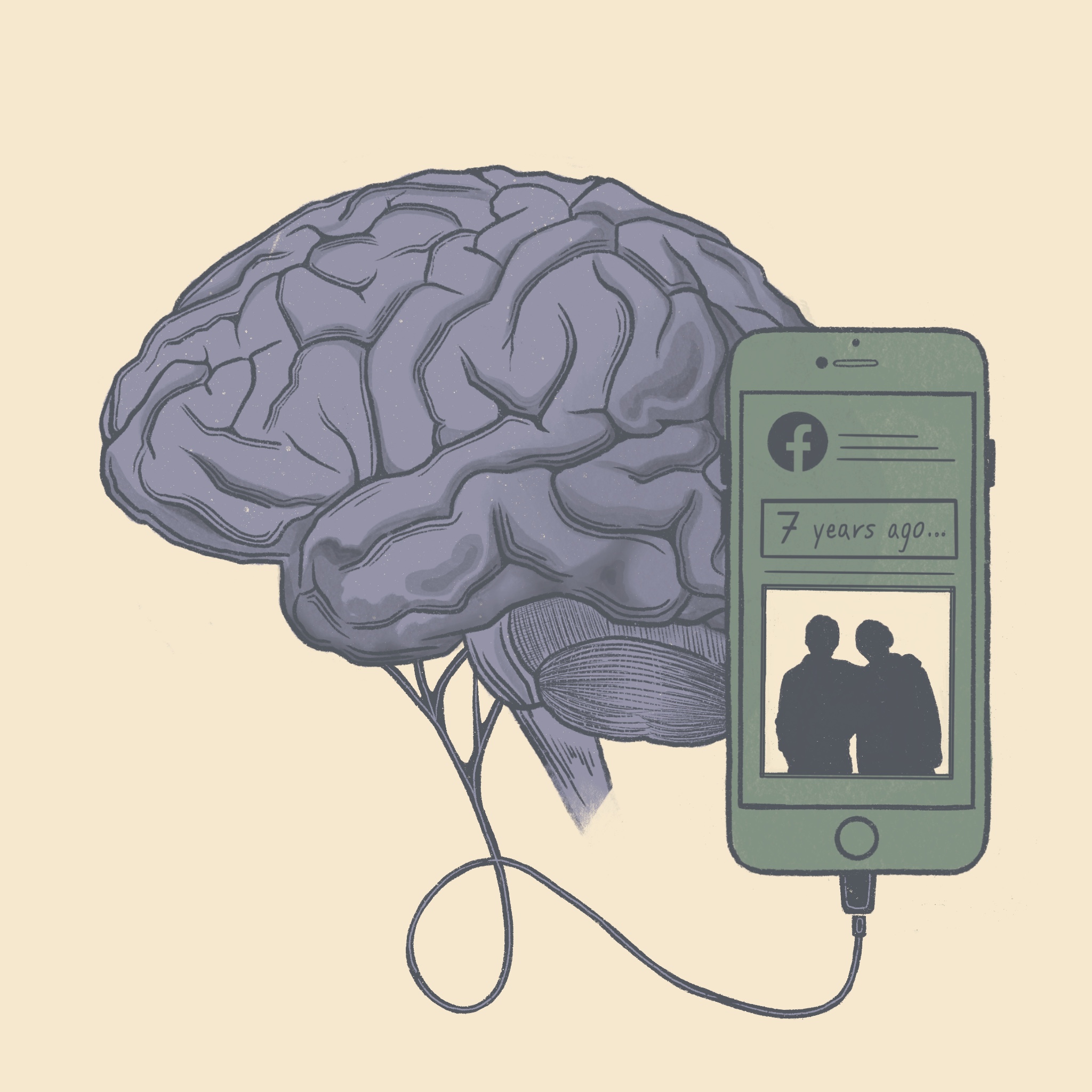Words: Constance Roisin (she/her)
Artwork: Magdalena Kosut (she/her)
This article features in our third print issue of the year, Ashes to Ashes.
‘This perfume’, a reviewer writes on Fragrantia, ‘reminds me of the Oyster Bar in 2008 and my dead ex-boyfriend’. The perfume is L’air de Rien, designed by Jane Birkin to smell like her brother’s skin. The combination of the musky perfume on human skin has a death-like smell. It reminds people of past lives. Another woman writes that when she wears it she is ‘in’ her grandfather’s house, with the white shutters and the dust. The connection between scent and memory is well documented. Our sense of smell allows us to travel back so quickly (Glasgow smells like batter, grass, honey). However, alongside sensory information, we have a new way of remembering.
Nora Ephron wrote, in I Remember Nothing, that she had once been curious about technology: ‘I became a champion of e-mails and blogs – I found them romantic’. As her memory faded, she wrote: ‘I used to think my problem was that my disk was full; now I’m forced to conclude that the opposite is true: it’s becoming empty’. Researcher Tony Schwartz argues that this is what technology does to our memory. He likens tech-overload to a glass of water, constantly being filled. The water that’s just entered spills out over the top. The new memory never makes its way to the bottom of the glass.
It would seem that technology helps our memory, acting as an external hard drive; a second brain. In fact, we are not allowed to forget — four years ago today: you were on the beach, you had better hair, that person was still alive, you were in love with that person. All stored in the iPhone under the function ‘Memories’, the horribly painful photos are mixed in with the meaningless: receipt, sunset, screenshot. However, a 2014 study found that you are less likely to remember an event if you have captured it on camera. In the same way that you are less likely to store information that you know you can readily access online, a phenomenon called “the Google effect”. To misquote Einstein: ‘Never memorise something that you can look up’. The problem, of course, is that everything is available online.
You are also less likely to remember clearly if you were not paying full attention at the time. Famously, tech is excellent at capturing our gaze. Oliver Hardt, a psychologist and memory researcher, explains that humans need to be attentive to their environments. ‘Our attention can shift rapidly around and when it does, everything else that was being attended to stops, which is why we can’t multitask. When we focus on something, it’s a survival mechanism: you’re in the savannah or the jungle and you hear a branch cracking, you give your total attention to that … Now, 30,000 years later, we’re here with that exact brain. The notification sound is the twig snapping. As Nora put it, between her and technology: ‘I’ve erected a wall to protect myself from most of it. On the other side of that wall are many things, pinging.’
In the early era of Facebook, a trending machine poll found that 18-35-year-olds had become more forgetful than seniors. Culturally, it’s romantic to lose your memory— from Anastasia, to Random Harvest, to the trope in the telenovela — but only if you get it back. Digital amnesia offers no return. The research suggests that the more we rely on technology, the less memories we will store into the mind’s “filling system”. As Nicolas Carr writes: ‘When facts and experiences enter our long term memory, we are able to weave them into the complex ideas that give richness to our thought.’ Without them, what we think can only ever be shallow. The photo slideshow, the interrupting notification — remember last Christmas, that bowl of pasta, that double rainbow, takes us further and further away from your grandad’s house, from the Oyster bar. One day this will all be a hazy nothing.
https://thedecisionlab.com/biases/google-effect
https://www.forbes.com/sites/davidschrieberg1/2016/10/06/your-memorys-getting-worse-heres-why/
https://www.huffingtonpost.co.uk/entry/technology-changes-memory_n_4414778

